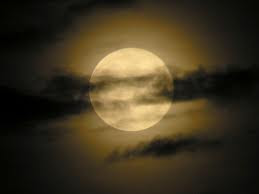Does the Full Moon Mess With Your Head? Exploring Lunar Influence
Does the full moon make you feel a little… strange? Restless? Like you could howl at the sky? You're not alone. For centuries, cultures across the globe have attributed unusual occurrences and shifts in human behavior to the full moon's luminous presence. But is there any truth to the idea that the full moon affects people, or is it just a persistent myth?
The notion that the full moon influences human behavior is deeply ingrained in our collective consciousness. From werewolves and lunacy (derived from the Latin word for moon, "luna") to increased emergency room visits and heightened criminal activity, the full moon has long been blamed for a wide range of strange phenomena. But what does science have to say about this pervasive belief?
While the idea of a full moon causing dramatic transformations might seem far-fetched, some research suggests a subtle connection between lunar cycles and human biology. Studies have explored potential links between the full moon and sleep disturbances, menstrual cycles, and even mood swings. However, the evidence is often inconclusive and requires further investigation.
One theory postulates that the full moon's increased brightness might disrupt sleep patterns, leading to fatigue and altered mood states. Another suggests the gravitational pull of the moon, which affects the tides, could also subtly impact the human body, which is primarily composed of water. However, these theories are still debated within the scientific community.
Regardless of the scientific validity, the belief in the full moon's power persists. It's a testament to humanity's enduring fascination with the celestial bodies that govern our world and the mysteries they hold. Let's delve deeper into the history, folklore, and potential impacts of the full moon on human experience.
Historically, many cultures revered the moon and attributed significant power to its cyclical phases. Ancient civilizations often held rituals and ceremonies during the full moon, recognizing its influence on the natural world, from tides to agriculture. This reverence likely contributed to the belief in the moon's power over human behavior.
If the full moon does indeed affect sleep, this could explain some perceived behavioral changes. Sleep deprivation can lead to irritability, decreased cognitive function, and even heightened emotional responses. Therefore, any disruption caused by the full moon's brightness could indirectly influence mood and behavior.
While concrete evidence for direct influence remains elusive, some people find benefit in aligning their activities with the lunar cycle. For example, some individuals use the full moon as a time for reflection, introspection, and setting intentions. Others might find it a potent time for creative endeavors or spiritual practices.
Many people swear by the full moon's influence on their emotions and energy levels. While scientific evidence is still being gathered, acknowledging the possibility of lunar influence and observing your own patterns can be an interesting personal experiment. Keeping a journal to track your mood and sleep during different phases of the moon might reveal intriguing correlations.
It’s important to maintain a critical perspective. If you're experiencing significant behavioral or emotional changes, it's crucial to consult with a healthcare professional rather than attributing them solely to the full moon.
Advantages and Disadvantages of Believing in Full Moon Effects
| Advantages | Disadvantages |
|---|---|
| Increased self-awareness and reflection | Potential for confirmation bias |
| Connection to natural cycles | Misattribution of serious health issues |
| Opportunity for creative and spiritual practices | Dismissal by others |
Frequently Asked Questions:
1. Is there scientific proof the full moon affects humans? The evidence is inconclusive and often debated.
2. Why do so many people believe in the full moon's influence? Cultural beliefs, folklore, and anecdotal evidence contribute to this persistent belief.
3. How might the full moon affect sleep? Increased brightness may disrupt sleep patterns.
4. What is the connection between the moon and tides? The moon's gravity influences the ocean tides.
5. Does the full moon cause lunacy? No, this is a myth. The term derives from historical misunderstandings.
6. How can I track the moon's influence on me? Keep a journal to monitor your mood and sleep during different lunar phases.
7. Should I be concerned about the full moon's effects? If you experience significant changes, consult a healthcare professional.
8. What are some practices associated with the full moon? Reflection, introspection, setting intentions, creative pursuits, and spiritual practices.
The full moon, a celestial beacon in the night sky, has captivated human imagination for millennia. While the scientific jury is still out on its direct influence on human behavior, the enduring belief in its power is a testament to our fascination with the natural world and the mysteries that remain. Whether the full moon’s effects are real or perceived, paying attention to its cycle and using it as a time for reflection and self-awareness can be a valuable practice. Exploring the relationship between humans and the lunar cycle offers a fascinating journey into the intersection of science, folklore, and personal experience. While embracing the wonder and mystery surrounding the full moon, it’s also crucial to maintain a grounded perspective and seek professional guidance for any significant health concerns. By blending curiosity with critical thinking, we can continue to explore the intriguing possibility of a lunar connection and its impact on our lives.
Unlocking your cars audio potential a deep dive into car audio wire connectors
Unlocking the secrets of giyu tomioka a demon slayer deep dive
Rare encounters style under the blue moon














